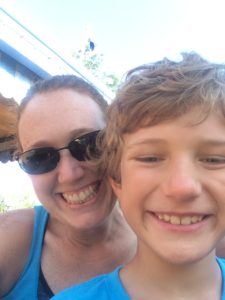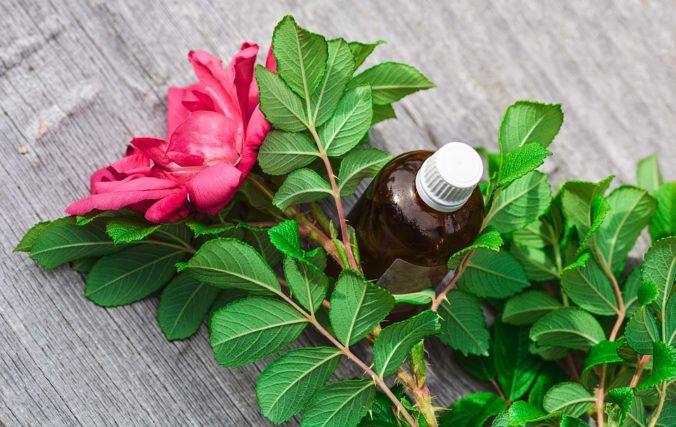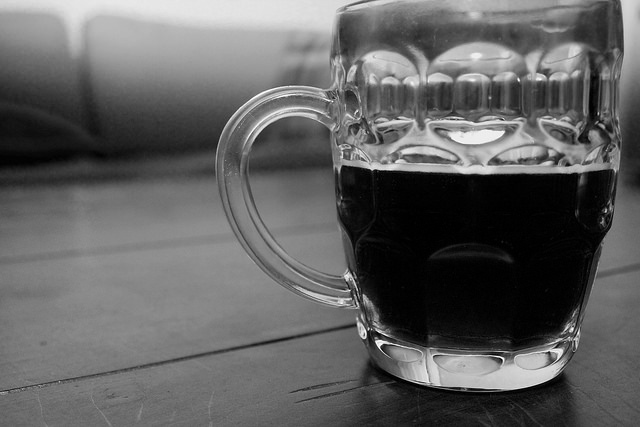Nine.
Not four or five, the way he is forever etched into my memory (as my early parenting years seem to be sticking like a case of PTSD and I’m perpetually believing that my children are 4, 3, 2, and newborn). Now my biggest is nine.
In case you’ve not done that math before, the average age of a student at graduation from high school is 18. This means I’m at the halfway mark. Half over; gone. Half to go. We’ve accomplished so much, come so far, and yet we have that distance again – and this next half will be even tougher. We have the exhaustion of this first leg coupled with brand new terrain. For the oldest kid, that’s always the toughest part – learning to roll with the new conditions. Figuring out how to navigate new things; social relationships change, what he believes to be true about himself changes.
It’s in this second leg that he will begin to unwrap what it means to love someone outside his familial tribe. He will switch gears, not just learning how to learn, but absorbing the ways of the world and synthesizing it into his own unique viewpoint as the basis of his operating mode. He will press into the boundaries of independence, and it’s his job to begin to explore. The expanding nature of the universe requires that he will go places and take steps that I never did. I can translate my wisdom and experiences, but they will not be the same.
In many ways, it would be easier if he would just do the same as me. I could tell him exactly how to step; his feet could fall into stride with my own footprints. I could ensure his safety this way, falling into any holes first. My head says this is the safest way to go about getting through this second half of childhood. But I know this isn’t the existence I want for him.
My heart says to teach him how to spot a hole, how to step mindfully, and send him in his own direction. I love my life, but do I really think that repeating it is the best thing this world has to offer him? I’ll welcome him to trail along, if that’s what he wants; a life of small-town living and tending to home-things is on the menu from which he can order. But if he’s feeling like a big city dream, then I want to give him the tools to take that route. If he yearns to be an adventurer, literally sailing or exploring, then I want to teach him the baseline skills to make it happen.
My job isn’t to pull him along on a leash. Of course, that’s the easiest way. And a little bit of the first half of childhood is exactly that; keeping them close so they can learn the ropes. They get familiar with the routes and explore from a governed distance. Then we remove the leash but bring it along, giving a bit more distance. Our voice is always near and they circle back often. Finally, someday, we open the door and send them out; they return when they want a break or are hungry or tired or lonely. They know how to return home.
 This second half of childhood will be a lot less leash, yet still taking the trek with him. Honestly, this is harder on me than him, feeling the weight of this useless leash in my pocket, watching with worry, wondering how far is too far? can he hear me from here? does he have his eyes out for this turn?
This second half of childhood will be a lot less leash, yet still taking the trek with him. Honestly, this is harder on me than him, feeling the weight of this useless leash in my pocket, watching with worry, wondering how far is too far? can he hear me from here? does he have his eyes out for this turn?
The analogy isn’t perfect; I’m raising a human, not training a puppy. The ultimate goal of training a puppy is to have an obedient dog, one that stays with you forever. That’s not the description of a grown man, able to contribute to society both in meaningful work and in living a life that radiates peace, joy, and love to his family, community and greater world. This will take far more nuance than running familiar routes and giving firm commands.
We were intentional about the methods we engaged for parenting our children for the first half. Now that he’s able to tie his shoes and pack his lunch and do his laundry and walk to the park by himself, I find myself having to think critically again about how to engage this second half.
This half has much more to do with trust: trusting myself (and JJ), that we’ve laid a good foundation of love and acceptance. Trusting him, that he’s in tune with the goodness of his birthright and living from that place more often than not. Trusting the world, that we can gracefully allow others to make mistakes when it’s safe to fail. Trusting my community to love him and accept him, even when he’s not perfect.
So here we go. Staying close, walking free, in this year of nine.


